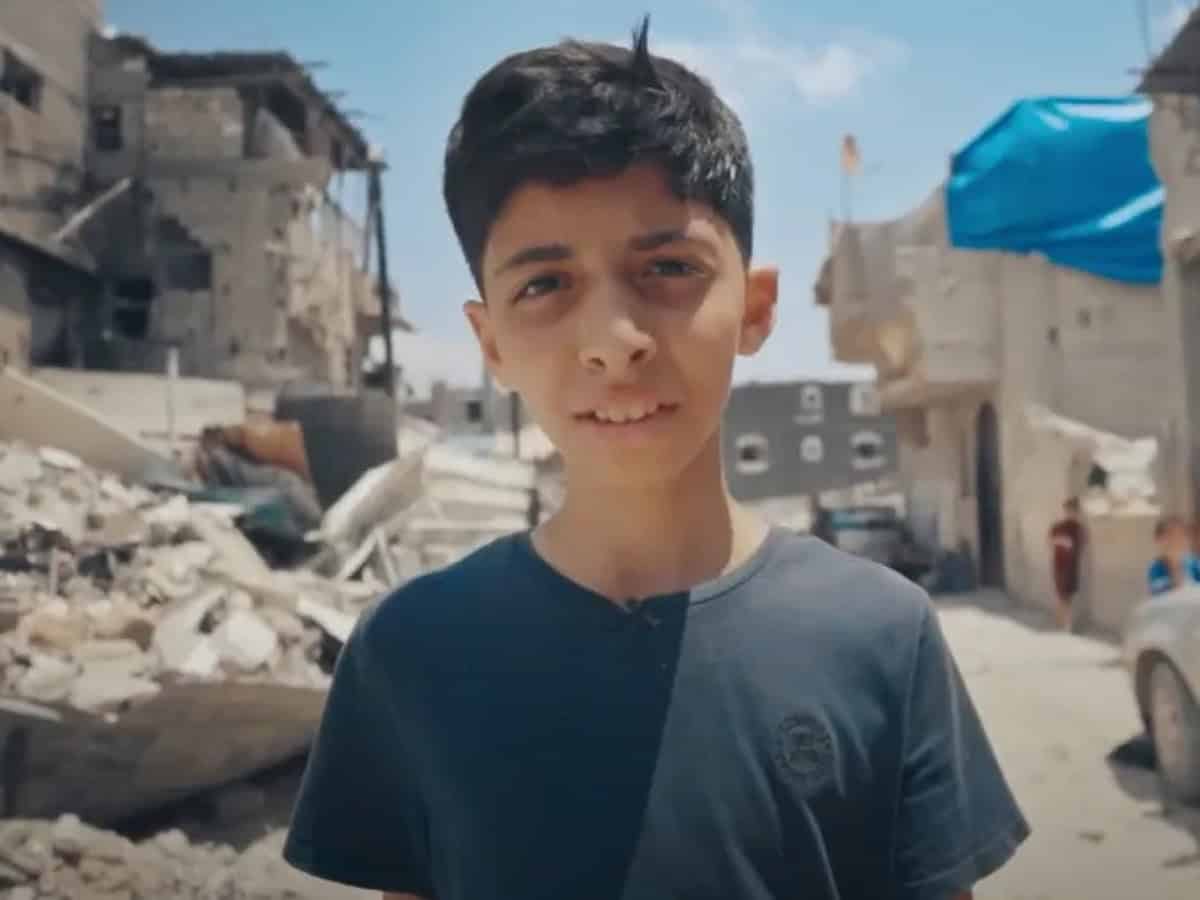
The BBC has faced intense criticism after removing its documentary “Gaza: How to Survive a War Zone” from its platform, following pressure from pro-Israeli groups. The documentary, which premiered on February 17, highlighted the daily struggles of children in Gaza amid war and siege.
Abdullah Al-Yazouri, a 13-year-old Palestinian narrator of the documentary, has been subjected to severe online harassment and holds the BBC responsible for his safety.
BBC removes documentary amid controversy
On February 21, the BBC removed the documentary from its iPlayer platform following pressure from pro-Israeli campaigners and launched an immediate review of what it described as “serious and damaging” errors.
This move follows reports alleging that Abdullah’s father Ayman Al-Yazouri is a senior Hamas official and former deputy agriculture minister in Gaza. However, his LinkedIn profile suggests he is a technocrat with a scientific background rather than a politician.
Ayman, a chemist, taught in Dubai before earning a PhD in environmental analytical chemistry. He later joined the UAE’s education ministry and became Gaza’s assistant deputy education minister in 2011. Since 2021, he has been Gaza’s deputy agriculture minister under the administration of the resistance group Hamas and has denied any affiliation with Hamas royalty.
In a statement on February 27, the BBC admitted to “serious flaws” in the documentary’s production, which was created by the independent British company Hoyo Films. The broadcaster acknowledged shared responsibility for the errors, stating,
“BBC News takes full responsibility for these and the impact they have had on the Corporation’s reputation. We apologise for this.”
The BBC said that its editorial oversight fell short and that the incident had damaged audience trust. It also revealed that Hoyo Films failed to disclose the narrator’s father was a former “Hamas official”, despite multiple inquiries.
In addition, the BBC confirmed that Hoyo Films paid the boy’s mother via his sister’s bank account for narration. While the company denied any payments to Hamas or its affiliates, the BBC has launched a full audit of the programme’s budget.
Abdullah faces harassment, criticises BBC
Following the documentary’s removal, Abdullah and his family became targets of online abuse.
“I worked on the documentary for nine months, and it was deleted, which is sad for me,” Abdullah told Middle East Eye on Wednesday, March 5. He spent 60 hours filming footage for the project.
“It has been very disappointing and sad to see such a backlash against me and my family, and such harassment. Some anonymous individuals are trying to hide the real suffering of Gaza’s children by attacking me and my family.”
Abdullah revealed that the BBC had not contacted him to apologise.
He also expressed concerns for his safety, stating,
“I did not agree to the risk of being targeted before the documentary was broadcast on the BBC. So, if anything happens to me, the BBC is responsible.”
However, Abdullah clarified that he had not received financial remuneration beyond expenses related to the documentary’s production. Despite the controversy, he remains hopeful that the documentary will be reinstated, allowing the voices of Gaza’s children to be heard.
BBC accused of endangering Abdullah’s safety
Many social media users have accused the BBC of putting at risk Abdullah’s safety. They argue that the broadcaster has a duty of care to protect underage contributors.
Critics have cited Section 9 of the BBC’s editorial guidelines regarding children’s welfare, which states,
“The BBC must take due care over the physical and emotional welfare and the dignity of under-18s who take part or are otherwise involved in our editorial content… Their welfare must take priority over any editorial requirement.”
Additionally, the guidelines dictate that if an under-18 is suspected to be at risk, the situation must be escalated to the appropriate advisory team.
Section 9 also mandates risk assessments and contingency plans to mitigate the emotional and psychological impact of participation in such productions.



